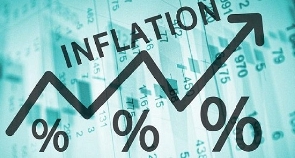Banking Consultant, Dr. Richmiond Atuahene, has said that it is essential for policymakers to balance the need to control inflation with the need to maintain financial stability and support economic growth.
Dr. Atuahene said the Bank of Ghana’s action to increase the cash reserve ratio and policy rate was likely to exacerbate the already challenging economic environment in Ghana, particularly for the financial sector.
He said this at the bi-monthly meeting of the Ghana National Chamber of Commerce and Industries (GNCCI), Tema Chapter.
He said it was important for policymakers and stakeholders to work together to find solutions that support financial stability and promote sustainable economic growth.
He said the recent hikes in the BoG’s Monetary Policy Rate to 29.5 percent as part of inflation targeting and the cash reserve ratio from 12 percent to 14 percent, and treasury bill rates, had affected banks and non-banking financial institutions.
Dr. Atuahene explained that increasing the cash reserve, which is the percentage of deposits banks must hold in reserve as cash, meant reducing the amount of funds that banks had for lending, which, he added, could lead to higher interest rates and a reduction in credit availability.
He said businesses and individuals might therefore find it harder to access credit, which he said could slow down economic growth.
He said the policy rate increase from 28 percent to 29.5 percent means that banks would charge higher interest rates on loans to their customers,” adding that this would make it more difficult for borrowers to pay back their loans.
“This can result in defaults, and loan losses for banks, leading to further liquidity pressures on the financial sector,” he said.
He observed that the combination of the policy rate and cash reserve ratio would put additional pressure on the profitability of banks and non-banking financial institutions, as the cost of borrowing would increase, with some customers defaulting in their loans repayments.
“In effect, the high cost of borrowing can also discourage customers from taking out loans, which can have negative effects on economic growth and development,” he added.
According to him, the current economic crisis was one of the most crucial environmental threats to businesses’ viability, profitability, and sustainability.
Dr. Atuahene said decreasing demand for raw materials, rising prices of products and services, reduction in profit margins, and others could influence businesses in different ways, as sensitive firms might close while many others might decrease production capacity due to insufficient consumer demand.
Business News of Tuesday, 25 April 2023
Source: GNA













